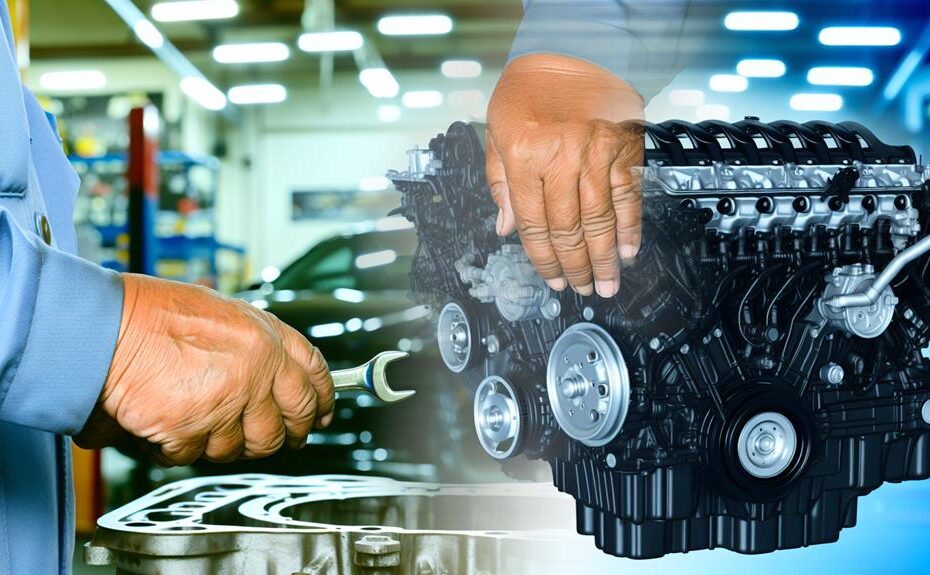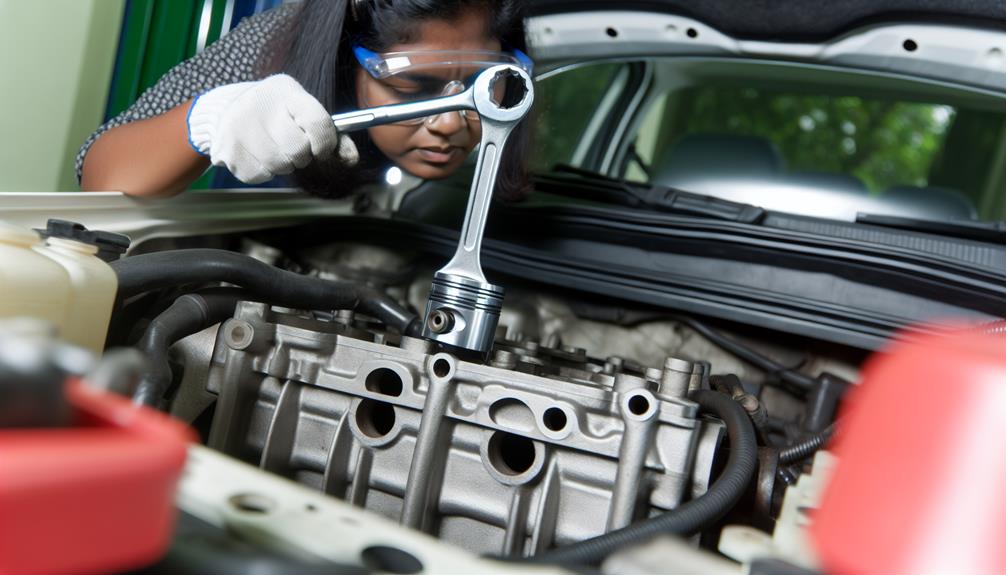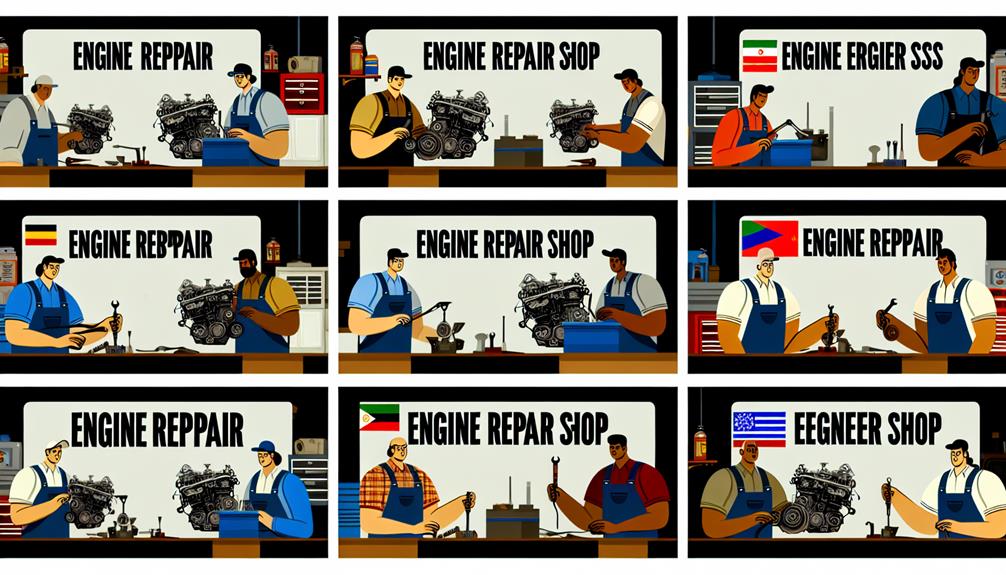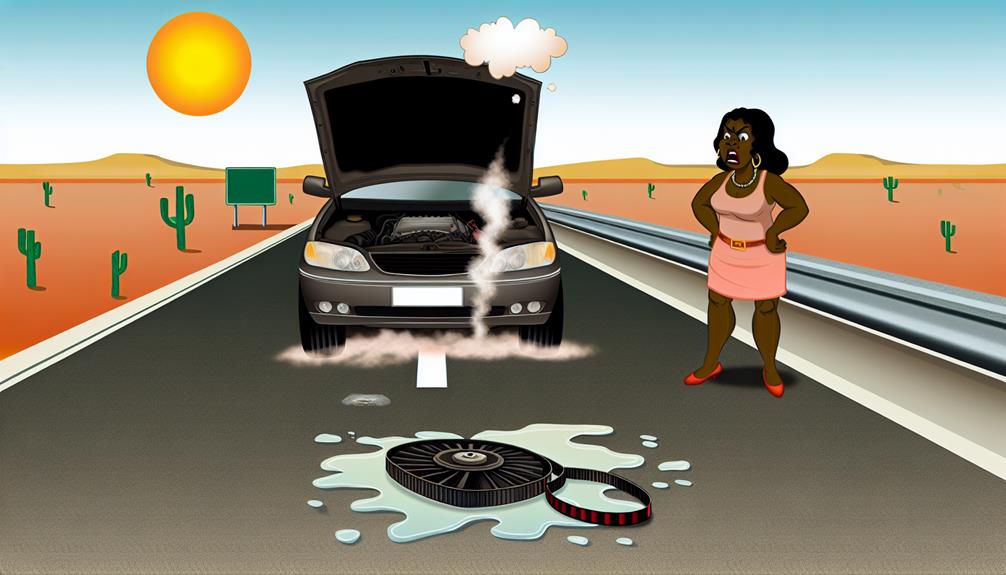Imagine cruising down the open road, the wind rushing through your hair, and the powerful purr of your engine propelling you forward.
But lately, you've noticed a decrease in your car's power, and it's starting to affect your driving experience.
Now you find yourself at a crossroads – should you repair your engine or replace it altogether?
In this discussion, we will explore the factors that come into play when deciding whether to revive your car's power through repair or replacement.
Get ready to make an informed decision that will bring back the thrill of the open road.
Key Takeaways
- Engine repair is a cost-effective option compared to engine replacement.
- Regular engine maintenance and timely repairs are crucial for optimum performance.
- Engine repairs help maintain the value of your vehicle and prevent major breakdowns.
- Factors such as cost consideration, extent of engine damage, and overall condition of the engine should be considered when deciding between repair or replacement.
Signs Your Engine Needs Repair
If you notice any of these signs, it's time to bring your car in for engine repairs. Engine maintenance is crucial for the optimum performance of your vehicle. Regular engine troubleshooting can help identify potential issues early on, preventing major damage and costly repairs.
One sign that your engine needs repair is a decrease in power and acceleration. If your car is struggling to reach high speeds or is taking longer to accelerate, it could indicate a problem with the engine.
Another sign to look out for is unusual noises coming from the engine. Knocking, clicking, or grinding sounds can indicate issues with the internal components, such as worn-out bearings or a damaged piston.
Excessive smoke coming from the exhaust is another red flag. Different colored smoke can indicate different problems. For example, black smoke may suggest an issue with the fuel injectors, while white smoke could be a sign of coolant leakage.
Additionally, if you experience a sudden increase in fuel consumption, it could be a symptom of engine trouble.
Benefits of Engine Repair
Engine repair offers several benefits that can improve the overall performance and longevity of your vehicle.
One of the key advantages of engine repair is its cost effectiveness. Instead of replacing the entire engine, repairing specific components can be a more affordable option. This is particularly beneficial if the damage is localized and doesn't affect the entire engine. By repairing the faulty parts, you can save a significant amount of money compared to the cost of a full engine replacement.
In addition to being cost effective, engine repair also helps to maintain the value of your vehicle. A well-maintained engine can extend the life of your car, allowing you to enjoy it for a longer period of time. Regular engine repairs and maintenance can prevent major breakdowns and address minor issues before they become more serious and expensive to fix.
Furthermore, engine repair can enhance the performance of your vehicle. By repairing or replacing worn-out components, you can restore the engine's power and efficiency. This can result in better fuel economy, smoother acceleration, and improved overall performance.
Common Engine Repairs
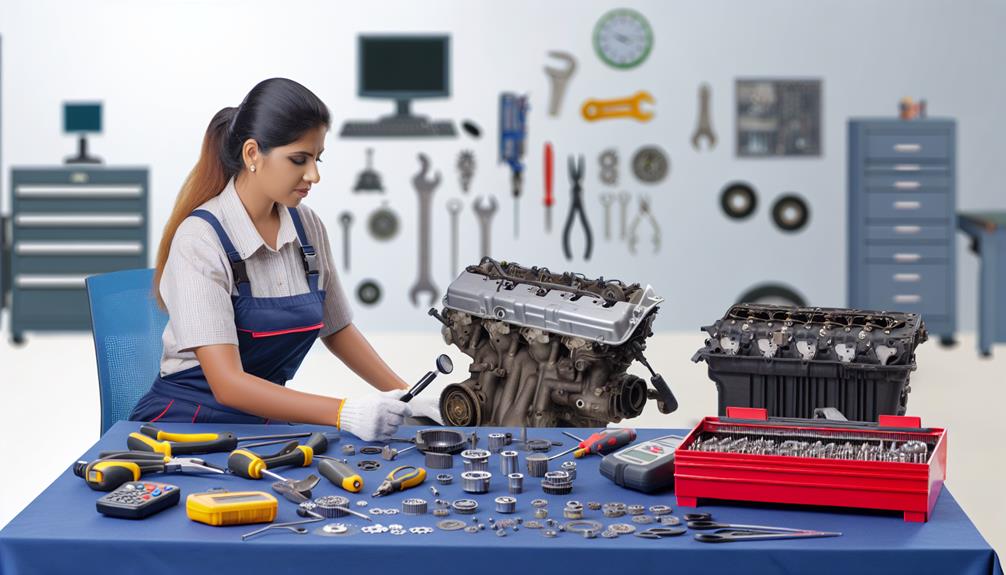
When it comes to maintaining your vehicle's engine, there are several common repairs that you may encounter. These repairs are crucial for ensuring the optimal performance and longevity of your engine. Regular engine maintenance and addressing repairs promptly can help you avoid more significant problems and costly repairs in the future. Remember, investing in the maintenance of your engine now can save you from expensive repairs down the road.
Here are four common engine repairs that you should be aware of:
- Spark plug replacement: Over time, spark plugs can wear out and cause misfires or difficulty starting your engine. Regularly replacing your spark plugs can improve fuel efficiency and prevent potential engine problems.
- Timing belt replacement: The timing belt is responsible for synchronizing the camshaft and crankshaft movements. If the timing belt breaks or becomes worn, it can lead to severe engine damage. Replacing the timing belt at recommended intervals can prevent costly repairs down the line.
- Cooling system repairs: The cooling system is responsible for regulating your engine's temperature. Issues such as a leaking radiator, faulty thermostat, or a malfunctioning water pump can cause overheating and engine damage. Regular maintenance and timely repairs can prevent these issues.
- Oil leak repairs: Engine oil is essential for lubricating and preventing friction within the engine. If you notice oil spots on the ground or a burning smell, it could indicate an oil leak. Addressing oil leaks promptly can prevent further damage and costly repairs.
Factors to Consider When Repairing Your Engine
To ensure efficient repairs for your engine, it is essential to carefully consider several factors that can impact the overall success and longevity of the repair process. Factors such as cost consideration play a crucial role in deciding whether to repair your engine or replace it entirely. By weighing these factors, you can make an informed decision that aligns with your budget and vehicle needs.
When considering the cost of repairing your engine, it is important to evaluate the extent of the damage and the potential for future issues. Conducting a thorough inspection and diagnostic test can help identify any underlying issues that may require additional repairs in the near future. This ensures that you are not spending more money on frequent repairs down the line.
To assist you in making an informed decision, consider the following factors:
| Factors to Consider | Cost Consideration |
|---|---|
| Extent of engine damage | Repair costs |
| Age and mileage of vehicle | Replacement costs |
| Availability of parts | Long-term costs |
| Overall condition of engine | Maintenance costs |
When to Consider Engine Replacement
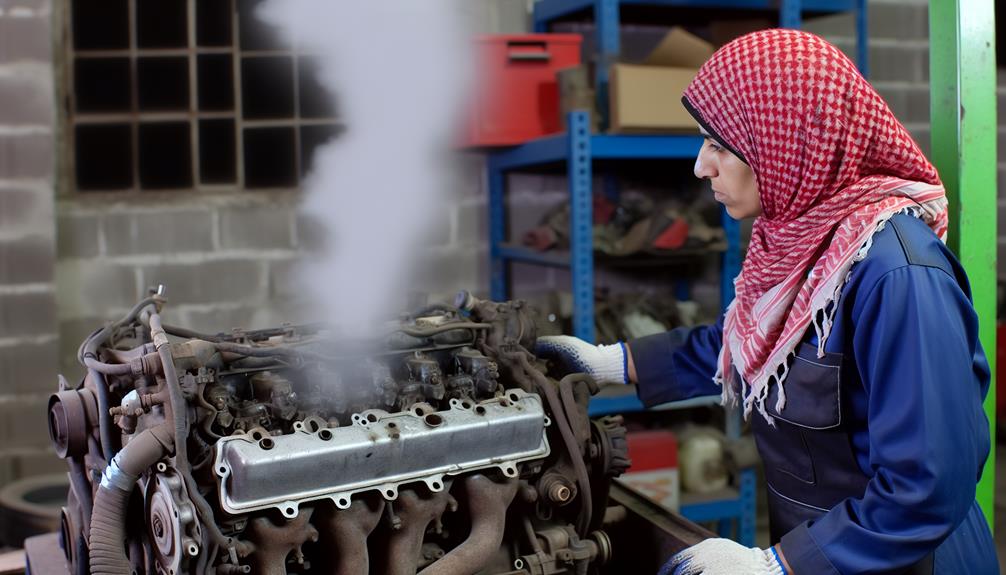
Considering the age and condition of your vehicle's power source, it may be necessary to evaluate the potential benefits of engine replacement. Engine replacement is a significant decision that requires careful consideration of various factors. Here are some key points to help you decide if engine replacement is the right choice for your car:
- Cost: Engine replacement can be expensive, and it's crucial to weigh the cost against the value of your vehicle. Compare the cost of a new engine to the current market value of your car to determine if it's a financially viable option.
- Performance: A new engine can significantly improve your vehicle's performance, providing more power, better fuel efficiency, and smoother operation. If you're looking to enhance your car's overall performance, engine replacement may be worth considering.
- Reliability: Aging engines may be prone to frequent breakdowns and costly repairs. Installing a new engine can bring back the reliability and peace of mind that comes with a dependable power source.
- Longevity: Engine replacement can extend the life of your vehicle, allowing you to enjoy it for many more years. If you have an emotional attachment to your car or prefer to avoid the hassle of shopping for a new one, engine replacement may be a viable option.
Before making a decision, weigh the pros and cons of engine replacement carefully. Consider the cost, performance improvements, reliability, and longevity it can offer. Ultimately, the choice rests on your specific circumstances and goals for your vehicle.
Frequently Asked Questions
Can Repairing Your Engine Improve Fuel Efficiency?
Repairing your engine can improve fuel efficiency as it ensures optimal performance. Regular maintenance has benefits such as enhancing engine performance and maximizing fuel consumption. Keep your engine in top shape for better mileage.
Are There Any Potential Risks Involved in Engine Repair?
There are potential risks involved in engine repair, such as further damage or complications. It is important to weigh these risks against the cost comparison of repairing or replacing your car's engine.
How Long Does the Average Engine Repair Take?
On average, engine repair can take anywhere from a few hours to a few days, depending on the complexity of the issue and the availability of parts. Factors affecting repair time include diagnosis, parts ordering, and the skill of the technician.
Can Engine Repairs Help Extend the Lifespan of Your Vehicle?
Engine repairs can improve performance and extend your vehicle's lifespan. They are a cost-effective solution compared to replacing the entire engine. By addressing specific issues, you can enjoy a longer-lasting car and save money in the long run.
What Are the Most Common Signs That Indicate the Need for Engine Replacement?
If your car shows signs like excessive smoke, loss of power, or knocking noises, it may indicate the need for engine replacement. Consult a professional to determine the best course of action.
Conclusion
In conclusion, when it comes to reviving your car's power, the decision between repair and replacement depends on the specific signs of engine trouble and the benefits of each option.
Engine repair offers the advantage of cost-effectiveness and preserving the original engine. By repairing the engine, you can address the specific issues that are causing the power loss without having to replace the entire engine. This can be a more affordable option, especially if the damage is not extensive.
On the other hand, engine replacement provides the assurance of a brand-new engine with improved performance. If your engine is severely damaged or if you are looking to upgrade your car's performance, replacing the engine may be the better option. A new engine can provide better fuel efficiency, increased horsepower, and overall improved performance.
When making this decision, consider factors such as the extent of damage, budget, and long-term plans for the vehicle. If the damage is minor and you plan on keeping the car for a long time, repair may be the more practical choice. However, if the damage is extensive or if you are planning to sell the car in the near future, replacing the engine may be a better investment.
Ultimately, the best decision for your car's power revival will depend on your individual circumstances and priorities. Take the time to evaluate the pros and cons of both options before making a final decision.
- How to Close Spark Plug Gap: Expert Tips and Tricks! - May 13, 2024
- How to Perfectly Align Projector Headlights With Halo - May 13, 2024
- How Many Amps Does a Car Horn Draw? Unveiling the Power Requirements - May 13, 2024
